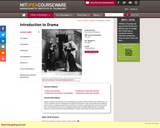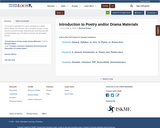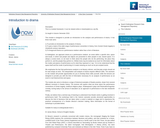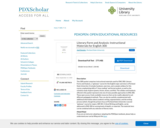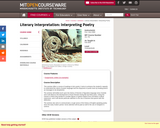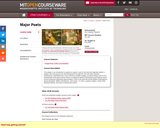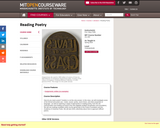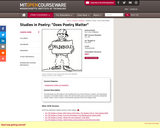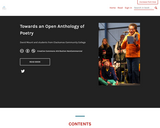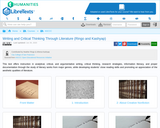This is a module framework. It can be viewed online or downloaded as a zip file.
As taught in Autumn Semester 2010.
This module is designed to provide an introduction to the analysis and performance of drama. It has three main aims:
1) To provide an introduction to the analysis of drama;
2) To give a taste of the wide range of performance convention in history, from Ancient Greek tragedy to nineteenth-century naturalism;
3) To foreground drama as a performance medium rather than a form of literature.
At Nottingham, we approach drama as a performance medium: an event within a specific time, space and locale, in which real people and objects are presented to other people in real, shared space. It is always a social event, so we learn to think about the people who do the performing, the place they perform in, and the people they perform to. Written texts may be looked at as much for information about the modes and places of performance as for what they represent or ‘say’. It is to be understood that the space itself and the mode of performing in it create meaning as much as do pre-scripted words.
We emphasise the fact that performance analysis is not literary criticism, and that play scripts should not be read simply as texts. The interpretation and analysis of drama requires different skills. The seminars on the module will provide opportunities for you to develop these skills yourself, while the lectures are designed to provide you with the kind of information necessary for an analysis of performance as an event in real historical time and space.
The module also aims to introduce a range of historical examples of theatre practice, drawn from several different moments in theatre history. The lectures will explore what we know about the performance conventions of Greek tragedy, medieval religious plays, Shakespeare's plays and Restoration/Augustan comedy, turning lastly to the arrival of naturalism as an approach to performance in the late nineteenth century.
Finally, we believe that a seminal way of learning to understand how theatre works is getting involved in performance itself. The workshops held in the Autumn semester provide structured opportunities to discuss the kind of decisions that are taken when a script is realised on stage and to experience the practical consequences of a theatre director’s decision making. More information on the format of workshops is provided below.
Suitable for study at undergraduate level 1.
Dr James Moran, School of English Studies.
Dr Moran's research is primarily concerned with modern drama. His monograph Staging the Easter Rising (2005) explores the connections between literature and politics, and was reviewed as 'a brave, confident book' in the Times Literary Supplement and as a 'terrific read' in the Irish Times. He also edited Four Irish Rebel Plays (2007), a volume described as 'fascinating' by Books Ireland and by Studies in Theatre and Performance. His latest monograph, Irish Birmingham: A History (2010), has been published by Liverpool University Press and reviewed as follows in the Irish Times: 'Even if you have no ties with Birmingham, if you are interested in culture or history, you'll enjoy Irish Birmingham: A History...Moran is a splendid writer, and a very engaging one'.
Dr Moran is currently Head of Drama at the University of Nottingham.
